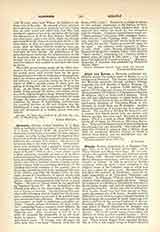

Gibbons, JOHN, Jesuit theologian and controversialist; b. 1544, at or near Wells, Somersetshire; d. August 16 or December 3, 1589, during a visit to the monastery of Himmelbrode, near Trier. He entered Lincoln College, Oxford, in 1561, but left the university without a degree. After studying philosophy and theology for seven years in the German College, Rome, he obtained the doctorate in both, 1576. Gregory XIII gave him a canonry in the Cathedral Church of Bonn, in Germany, but he resigned this on entering the Society of Jesus at Trier, in 1578. In the college of this latter place he filled successively the offices of confessor, professor of theology, professor of Sacred Scripture, prefect of studies, and rector. Though remarkable for his zeal, charity, and admirable administrative ability, he became more eminent on account of his controversial talents, which he displayed in frequent contests with the Lutherans of Germany. When Dr. Allen suggested Father Gibbons as a fit candidate for the English mission, the latter wrote both to the General of the Society and to Dr. Allen, that he hoped he should give no disedification by saying that he had not the spiritual strength necessary for such an enterprise, but that he would lend it all the assistance in his power.
Among his literary works must be mentioned: “Concertatio Ecclesiae Catholicae in Anglia, adversus Calvino-Papistas et Puritanos” (Trier, 1583). The work was republished on a larger scale in 1588 and 1594, by Dr. John Bridgewater, who numbered among his assistants Cardinal Allen and Dr. Humphrey Ely. Dr. Bridgewater also edited (see, however, Dict. Nat. Biog., s.v.) a posthumous work of Gibbons entitled “Confutatio virulent ae disputationis theologian in qua Georgius Sohn, Professor Academiae Heidelbergensis, conatus est docere Pontificem Romanum esse Antichristum a prophetis et apostolis praedictum (trier, 1589). The Calvinist aspersions on the Roman pontiff are disposed of without much difficulty.
A. J. MAAS

